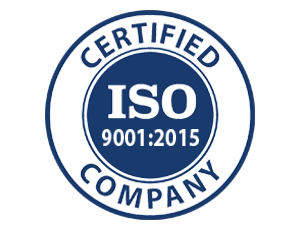Liquid Molding Monthly
What is an Rfid Bluetooth Reader and How Does it Enhance Data Efficiency
In the rapidly evolving landscape of technology, the integration of RFID (Radio Frequency Identification) and Bluetooth capabilities has led to the development of innovative devices that significantly enhance data efficiency. One such device is the RFID Bluetooth Reader, which combines the strengths of both RFID’s automatic identification and data capture prowess with Bluetooth's wireless communication versatility. This revolutionary reader not only streamlines the process of data collection but also improves accuracy and speed in various applications, ranging from inventory management to access control systems.
As industries increasingly seek to optimize operations and improve data management practices, the adoption of RFID Bluetooth Readers has surged. These devices facilitate real-time data tracking and retrieval, enabling businesses to make informed decisions based on accurate and timely information. With a potential landscape in 2025 highlighting numerous digital innovations, understanding the impact of RFID Bluetooth Readers is crucial for organizations looking to secure a competitive edge in their respective markets. This article will delve into the core functionalities, benefits, and future implications of RFID Bluetooth Readers, illustrating how they can transform data processes and efficiency across various sectors.
Understanding RFID Bluetooth Readers: A Comprehensive Overview
RFID Bluetooth readers are innovative devices that combine radio frequency identification (RFID) technology with Bluetooth connectivity to enhance data efficiency across various applications. These readers are capable of wirelessly scanning RFID tags, which store information about products, assets, or any other items that require tracking. By leveraging Bluetooth technology, these devices can swiftly transmit collected data to smartphones, tablets, or computers, facilitating real-time data management and decision-making.
The integration of RFID and Bluetooth technology streamlines processes in sectors such as retail, logistics, and inventory management. For instance, businesses can conduct inventory checks quickly and accurately by using RFID Bluetooth readers, significantly reducing the time spent on manual scanning and minimizing human errors. This comprehensive overview highlights the adaptability of RFID Bluetooth readers, showcasing their role in automating data collection and fostering seamless communication between devices. As organizations increasingly seek ways to optimize operations, the significance of these readers in enhancing data efficiency cannot be overstated.
What is an Rfid Bluetooth Reader and How Does it Enhance Data Efficiency - Understanding RFID Bluetooth Readers: A Comprehensive Overview
| Feature | Description | Benefits | Use Cases |
|---|---|---|---|
| Data Transmission | Utilizes Bluetooth technology for wireless communication. | Increased mobility and flexibility in data access. | Inventory management, asset tracking. |
| Read Range | Typically ranges from a few inches to several meters. | Improves workflow efficiency by reducing manual scanning. | Warehouse logistics, shipping and receiving. |
| Integration | Can easily integrate with existing systems and databases. | Streamlines data processing and enhances operational efficiency. | Retail checkout systems, healthcare tracking. |
| Power Source | Powered by rechargeable batteries. | Sustainable operation with minimal downtime. | Mobile scanning solutions, field services. |
| User Interface | Equipped with intuitive touch screens or visual indicators. | Enhances user experience and reduces training time. | Staff training, customer service operations. |
Key Components of RFID Technology and Bluetooth Integration
RFID technology, or Radio-Frequency Identification, plays a crucial role in enhancing data efficiency across various sectors. At its core, RFID consists of three main components: a tag, a reader, and an antenna. The tag contains a microchip and an antenna that enables it to transmit data wirelessly. The reader, equipped with an antenna, captures this data when in proximity to the tag. This seamless transmission of information is what sets RFID apart, allowing for rapid data capture and inventory management without the need for manual scanning.
Integrating Bluetooth technology with RFID further amplifies these efficiencies. Bluetooth Low Energy (BLE) enhances the range and accessibility of RFID systems, enabling real-time data tracking and communication with mobile devices. This combination not only improves operational workflows but also provides businesses with invaluable insights through analytics. Such advancements are particularly beneficial in sectors like automotive and logistics, where accurate tracking of items enhances user experience and security.
How RFID Bluetooth Readers Streamline Data Collection Processes
RFID Bluetooth readers are transforming the way data is collected and managed across various industries. By leveraging the power of RFID (Radio Frequency Identification) technology combined with Bluetooth connectivity, these devices simplify and enhance the data collection process. Unlike traditional barcode scanners, RFID readers can capture data from multiple tags simultaneously without needing a direct line of sight, significantly speeding up inventory checks, asset tracking, and personnel monitoring.
Moreover, the integration of Bluetooth allows for seamless communication with mobile devices and cloud systems, enabling real-time data uploading and accessibility. This immediacy reduces the chances of human error and ensures that stakeholders have access to the most current information, improving decision-making and operational efficiency. Organizations can streamline workflows, minimize downtime, and optimize resource management, ultimately leading to higher productivity levels and cost savings. With RFID Bluetooth readers, data collection becomes not only faster but also more reliable, paving the way for smarter business practices.
Real-World Applications: Enhancing Business Efficiency with RFID Bluetooth Readers
RFID Bluetooth readers are transforming the way businesses operate across various industries by significantly enhancing data efficiency. According to a report by Grand View Research, the global RFID market is projected to reach $40 billion by 2026, with the growing adoption of Bluetooth technology driving this expansion. Businesses leverage RFID Bluetooth readers to streamline inventory management, improve asset tracking, and minimize human error. For example, retail outlets can use these readers to automatically track inventory levels in real-time, reducing stock discrepancies by as much as 30%.
In the manufacturing sector, a study from the RFID Journal highlights that companies implementing RFID Bluetooth systems can experience up to a 50% reduction in time spent on inventory-related tasks. This efficiency gain not only saves labor costs but also enhances productivity. Moreover, logistics companies utilize RFID Bluetooth technology to optimize supply chain operations, allowing for greater visibility and faster shipment processing. By integrating RFID Bluetooth readers into their operations, businesses are not only improving their efficiency but also enhancing overall customer satisfaction through faster service and better accuracy in order fulfillment.
Future Trends: Innovations in RFID and Bluetooth Technologies for Data Management
The evolution of RFID and Bluetooth technologies is reshaping data management, particularly in logistics and supply chains. Innovations such as Smart Printables are at the forefront of this transformation, enabling more dynamic integration of information. These advanced labeling solutions allow for better tracking and monitoring of goods, enhancing both efficiency and accuracy in data handling. By leveraging RFID's contactless capabilities alongside Bluetooth connectivity, businesses can streamline operations, reduce errors, and improve visibility throughout the supply chain.
Future trends indicate a significant shift towards more intelligent applications of these technologies, driven by demands for sustainability and real-time data access. The adoption of hybrid security techniques in RFID middleware architecture is enhancing data protection while facilitating modern tracking innovations. Moreover, the rise of IoT ecosystems is set to further amplify the potential of RFID and Bluetooth technologies in retail and logistics, optimizing processes and enabling predictive analytics. As industry leaders embrace these innovations, data management will continue to evolve, leading to more resilient and efficient operational strategies.


100% Mercury Free
All of Hapco's formulations are completely free of Mercury.

50 Year Track Record
Hapco has been in business for over 50 years!
*NOTICE* Hapco will be will be closed on Monday, May 26th, in observance of Memorial Day. |
Privacy Overview
| Cookie | Duration | Description |
|---|---|---|
| cookielawinfo-checkbox-analytics | 11 months | This cookie is set by GDPR Cookie Consent plugin. The cookie is used to store the user consent for the cookies in the category "Analytics". |
| cookielawinfo-checkbox-functional | 11 months | The cookie is set by GDPR cookie consent to record the user consent for the cookies in the category "Functional". |
| cookielawinfo-checkbox-necessary | 11 months | This cookie is set by GDPR Cookie Consent plugin. The cookies is used to store the user consent for the cookies in the category "Necessary". |
| cookielawinfo-checkbox-others | 11 months | This cookie is set by GDPR Cookie Consent plugin. The cookie is used to store the user consent for the cookies in the category "Other. |
| cookielawinfo-checkbox-performance | 11 months | This cookie is set by GDPR Cookie Consent plugin. The cookie is used to store the user consent for the cookies in the category "Performance". |
| viewed_cookie_policy | 11 months | The cookie is set by the GDPR Cookie Consent plugin and is used to store whether or not user has consented to the use of cookies. It does not store any personal data. |


